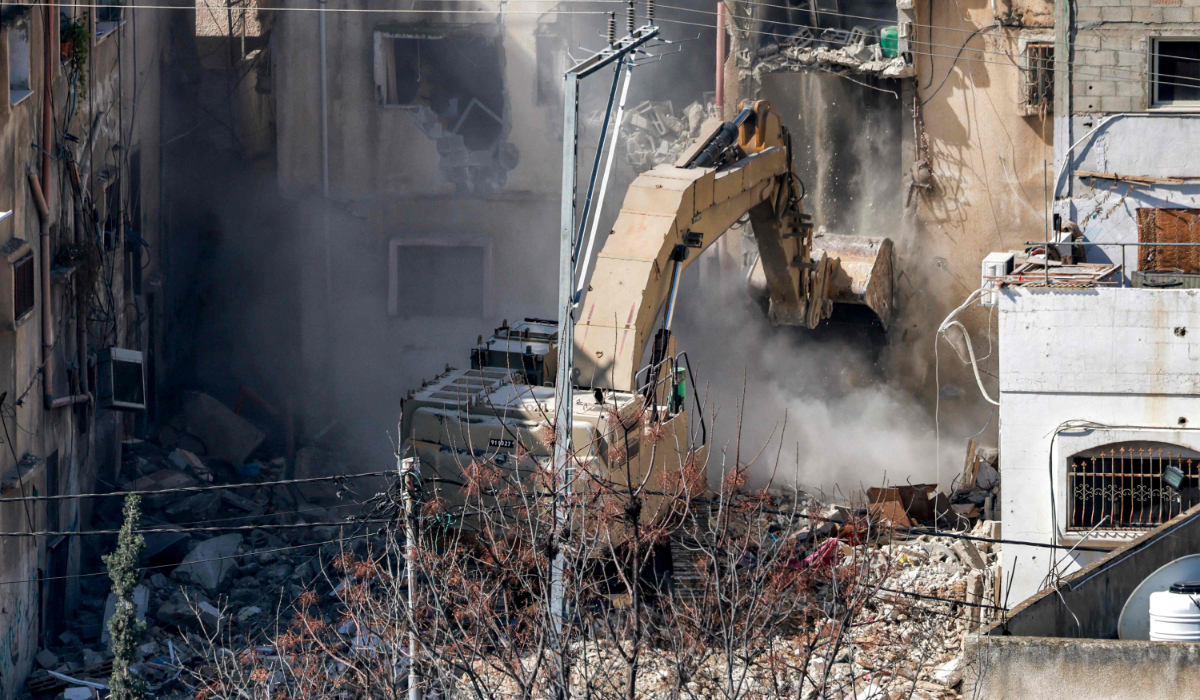BEIRUT: Japan says it hopes the Lebanese government will urge Hezbollah to avoid escalating hostilities to prevent its conflict with Israel spreading across the region.
In a telephone call to her Lebanese counterpart, Foreign Minister Yoko Kamikawa said Tokyo was “closely monitoring the situation in the Middle East with deep concern” and “calls on all parties to refrain from escalation and avoid a full-scale war in the region.”
Her appeal came as Israeli warplanes on Thursday carried out several raids on border villages in southern Lebanon, destroying several buildings.
According to Lebanon’s caretaker Foreign Minister Abdallah Bou Habib’s media office, Kamikawa “emphasized Japan’s support for the tripartite effort led by the US, Egypt and Qatar to reach a ceasefire agreement in Gaza.”
During the call, Bou Habib warned that the situation in the region could spiral out of control if negotiations regarding Gaza failed.
He reiterated Lebanon’s “desire to avoid escalation and war and the need for a ceasefire in Gaza to establish calm in southern Lebanon and the region.”
He said he appreciated Japan’s “support for Lebanon at the UN.”
Kamikawa said Japan was coordinating with France on the UN Security Council regarding the extension of the UN Interim Force in Lebanon’s mandate, recognizing its importance.
Caretaker Prime Minister Najib Mikati's media office said the ongoing communications regarding the Security Council’s renewal of UNIFIL’s mandate for another year at the end of this month “showed an understanding of Lebanon’s demand to maintain the tasks of these forces without introducing any changes that could complicate the already tense situation.”
The Chinese Embassy in Beirut, meanwhile, said in a statement on Thursday that Beijing was urging its citizens in Lebanon to leave “as soon as possible.”
“Recently, the situation on the Lebanese-Israeli border has continued to be tense and security circumstances in Lebanon are severe and complex,” it said.
“The current level of risk to travel in Lebanon’s South and Nabatieh Governorates is red (extremely high risk) and other areas is orange (high risk).”
Israeli warplanes carried out almost simultaneous raids on Thursday on 14 border villages. They followed 13 military operations carried out by Hezbollah on Wednesday against Israeli army positions and outposts.
The Israeli raids targeted homes in Aita Al-Shaab, Kfarshouba, Mhaibib, Mais Al-Jabal, Wadi Al-Azba near Zebqine, Chihine, Kaouthariyet Al-Saiyad, Ramyeh, Kfarkila, Naqoura, Jable, Labbouneh and Allam.
Army spokesperson Avichay Adraee said on X that Israeli forces “attacked and destroyed Hezbollah targets in over 10 different areas in southern Lebanon.”
“The targets included weapons depots, military buildings and a rocket launcher used by Hezbollah to carry out attack operations against Israel.”
Hezbollah said it responded with an attack on “the Branit site with heavy artillery shells” and “an aerial attack with a fleet of drones on Israeli army positions in the Kiryat Shmona settlement.”
It also targeted “spy equipment in the Jal Al-Allam site with an attack drone, hitting it directly,” and targeted “gatherings for Israeli soldiers in the surroundings of the Metula settlement, using direct weapons and causing direct hits.”
Hezbollah also targeted “a positioning of Israeli soldiers near Al-Ghajar site with appropriate weapons, killing and injuring its members,” it said.
No casualties were reported following the Israeli attacks, but Israeli media said “three mortars landed in Metula, near the Lebanese border, without causing the sirens to activate.”
While the army spokesperson gave no explanation for the shelling a Lebanese security source said Hezbollah’s attacks on Wednesday “didn’t violate the rules of engagement.”
Hezbollah’s attacks on Wednesday targeted the Tsnobar logistics base in the occupied Syrian Golan Heights after Israel attacked Hezbollah’s weapon depots in northern Bekaa on Tuesday. Some of Hezbollah’s rockets landed in the town of Katzrin, injuring one person.
Israeli Channel 7 reported that 60 homes in the town had been damaged.
Speaking to Israeli Radio 104.5, Yehuda Dua, the head of the local council in Katzrin, said: “Five Hezbollah rockets hit the town, destroying homes and leaving families homeless.”
According to the emergency health report prepared by the Lebanese Ministry of Health, “from Oct. 8, 2023 until Aug. 20, 2024 the total number of recorded injuries has reached 2,412, including 564 fatalities.”






























